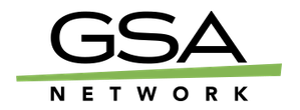This interview is part of the #StillWeRise Series produced by the National Youth Council for GSA Day for Racial Justice (#GSADay4RJ). Click here to learn more about our annual #GSADay4RJ campaign.
Meet Yanté, interviewed by Jae from the National Youth Council
What if your first memory of activism?
My first moment of activism was participating in my school’s Day of Silence. At first, I was doing it because my friends were, and then I realized that I was being harmed by bullying. After my realization, I wanted to be more active!
What has pulled you towards activism?
Going against the grain has always been in my person, mostly because I wasn’t really sure who I was and [people] always made me stick out or melt into backgrounds! Once I learned that activism was about stepping up for yourself and body integrity, I took to it. People told me I couldn’t—so I did.
How have your marginalized identities influenced your activism?
My marginalized identities are my activism. They are my experiences and are with me in everything I do. My intersections guide [me] to understand what justice even means.
What is a hard lesson about activism [that] you’ve learned?
A hard lesson I learned regarding activism was: Just because people will rally with you, doesn’t mean you are fighting for the same thing. People have a hard time with intersections.
What is a leader to you?
A leader looks like many things. A leader is a person who guides, isn’t power hungry, and knows that in order to make change, it starts with internal work. In order to make change it starts with the People.
What is your advice to younger or newer activists?
I want to tell young activists that y’all know exactly what you are talking about. Adults will forever lose at inclusivity [if] they do not include young people’s narratives. Challenge your elders. Gift them your knowledge.
What is your advice to those wanting to be allies?
My advice to allies is: Move from allyship [and] move towards accomplice. Allyship isn’t a badge of honor; it’s an obligation.
What do you wish people understood [or] knew more about?
I want people to know that Liberation takes groundwork. It takes blood, sweat, and way too many tears. There’s no such things as right and wrong in Liberation work—only human morality!
What gives you hope?
Young folks bring me a lot of hope. As I move from being classified as a youth, I grow to appreciate young people even more. I see them and I feel held! Like the work wont stop when I do. Hope just runs through me. Also animals and books have been my grounding tools!
